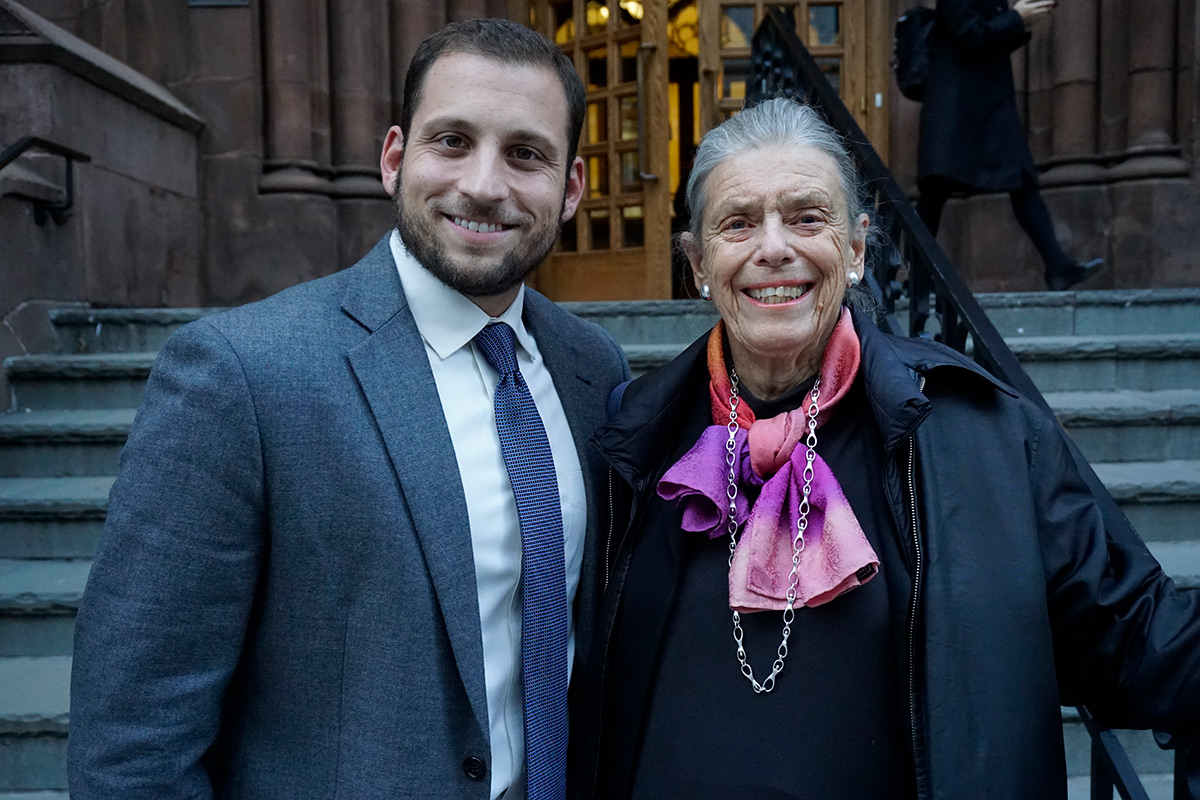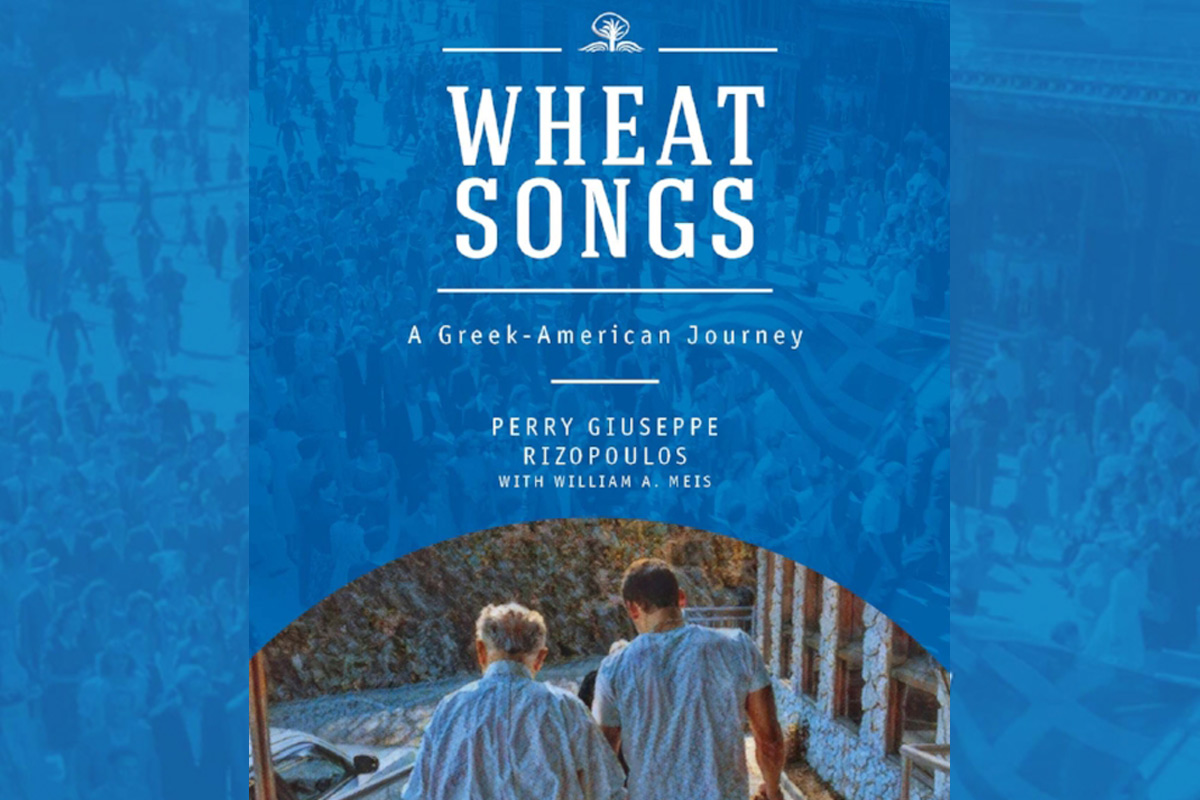It’s a tradition in Hope Leichter’s famed Family as Educator course: On the first day of class, Leichter, Elbenwood Professor of Education, greets each student individually and asks for a description of a significant educational moment imparted by a loved one.
Perry Giuseppe Rizopoulos, beginning a master’s degree in August of 2013, had plenty of pertinent examples to choose from. But for Rizopolous, the product of a close-knit, Greek-Italian American, story-telling family, one stood out: The day, 10 years earlier, when his grandfather, Pericles’ Rizopoulos shared the contents of a journal kept by his older brother, Panayiotis, that detailed the harrowing experiences they both endured in war-torn Greece from 1940-45.
“My pappou handled the story and the book with such care,” recalls Perry Rizopoulos, “and because he was someone I loved and respected so much, I immediately had the sense that it was very important.”
Just days after Leichter’s opening class, the younger Rizopolous visited his grandfather at his home in the Pelham Parkway section of the Bronx and asked to see the journal again. Their exchange is recounted in Perry Rizopolous’ book Wheat Songs: A Greek-American Journey, published in October by Academic Studies Press/Cherry Orchard Books:
“Perry,” he asked me, “why do you want me to find this book?”
I told him I was going to use it for my graduate school thesis.
“Graduate school thesis!” he appeared somewhat nervous. “You will make sure it’s safe?”
“Of course, pappou.”
Then he gave me a sly smile. “But Perry, you don’t read Greek.”
“I guess I’ll find someone to translate it,” I said.
“Ah, Ναι, yes, you will need someone to translate my brother’s words.”
“Exactly, pappou.”
Wheat Songs (the name is taken from tunes sung by Ourania, mother of Pericles and Panayiotis, when she harvested grain, young children at her side, prior to the war) intertwines the odyssey that brought Pericles from the northern Greek city of Kastoria to the Bronx with an account of an often-overlooked part of history – the Axis occupation of Greece during the Second World War.
[Read the first chapter of Wheat Songs: A Greek-American Journey by Perry Rizopolous]
“It is a Greek narrative and a Bronx narrative,” says Rizopoulos, who teaches introductory philosophy courses at St. John’s University and the College of Mount St. Vincent.

CHANNELING HOPE Rizopolous and Leichter, whose class sparked his exploration of family history.
As the book recounts, Pericles Rizopoulos was in his early teens when the German occupation of Kastoria forced thousands, his family included, to take refuge in the nearby mountains. When he and Panayiotis descended to get food for the rest of the family, they were captured by Nazi forces. Initially they were interned in the same military camp, but were separated when the Germans transferred Pericles to a facility that trained conscripts for active duty on the Russian front or for jobs in concentration camp deaths across Northern Europe. Pericles weathered the training, and shortly after, technically becoming a German soldier, he received permission to visit Panayiotis.
Pericles managed to outfit his brother in a Nazi uniform, and the two then shepherded scores of imprisoned Greeks to safety in the mountains and other havens.
“My pappou handled the story and the book with such care. and because he was someone I loved and respected so much, I immediately had the sense that it was very important.”
—Perry Rizopolous
Wheat Songs also describes the post-war rebuilding of bomb-ravaged Kastoria, the onset of the Greek Civil War and Pericles’ arrival in the United Sates during the early 1970s with just $37.00 in his pocket. Pericles eventually owned and operated coin laundries and the author’s father, Bill, opened two pizzerias in the Inwood section of Manhattan. The piece describes how three generations of the Rizopoulos family worked together in their stores; how these experiences shaped the author during his childhood; and how the wheat songs of Perry’s great-grandmother are still sung by the Rizopoulos family to this day.
Pericles Rizopoulos, who died in 2016, read the early drafts of the story that his grandson initially submitted for his TC Master’s thesis. Perry Rizopoulos, currently an Ed.D candidate in the TC Interdisciplinary Studies program, will soon publish a trilogy – One Hundred Conversations You Need to Have: A Philosophy Guide for Daily Growth which on ideas from a wide array of thinkers, including John Dewey.
Meanwhile, Rizopolous continues to channel Hope Leichter’s teaching with his own students.
“Hope creates an energy that I’ve attempted to mirror in my classes,” says Rizopoulos. “I greet everyone individually as they walk through the door with, a ‘Hello,’ ‘how are you?’ or ‘Good morning,’ not only to make them feel welcome, but also because I think it’s important they know that I care about and appreciate their attendance. That’s what a good teacher does.”
And, of course, you never know what students will remember.
